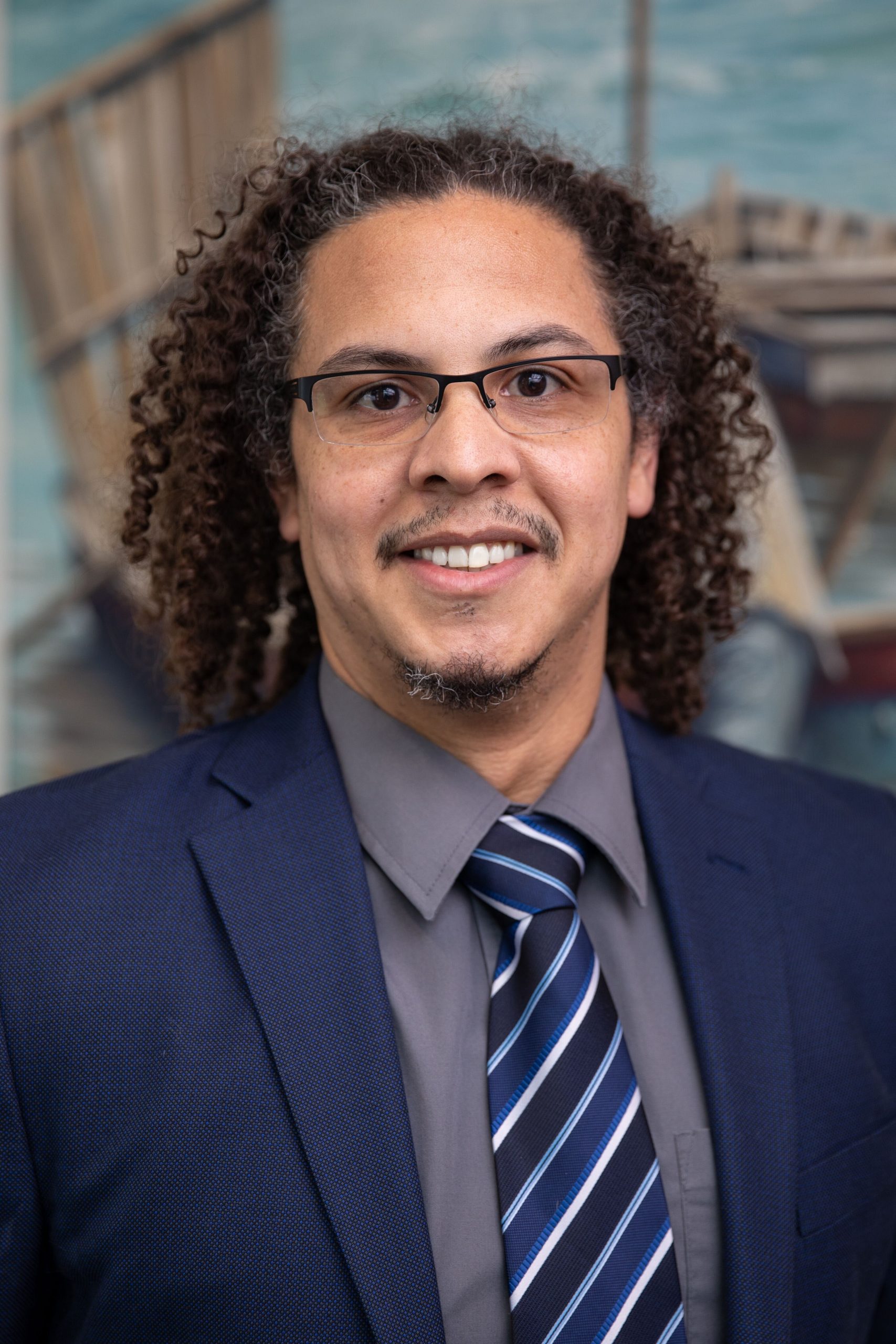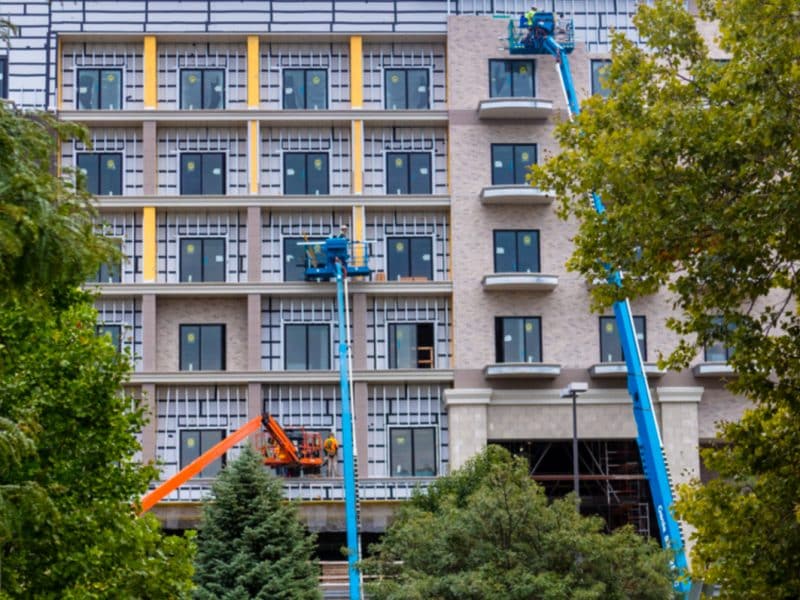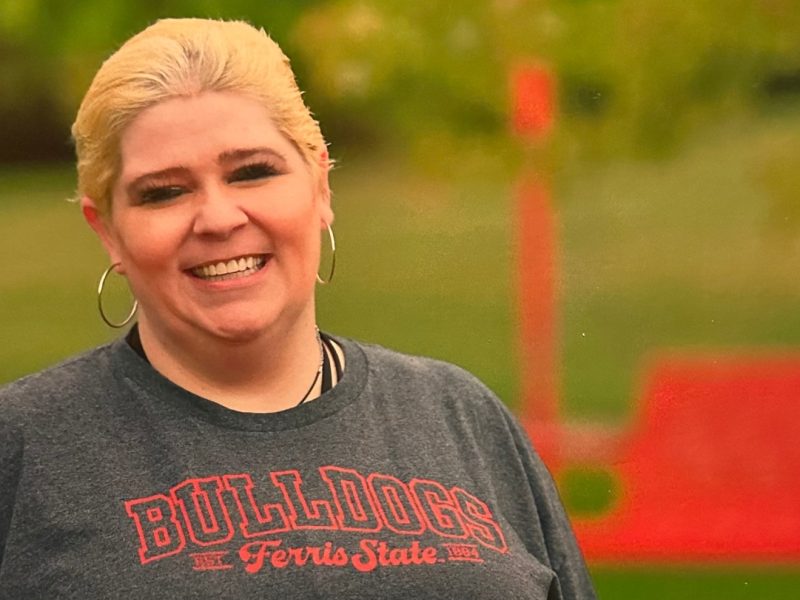Published Together: Is Grand Rapids a nice place to live?
"A shift is occurring in our society. We must dismantle and re-engineer new systems that are free of structural racism," says Micah Foster, Executive Director of the Grand Rapids African American Health Institute. In this vulnerable op-ed, Foster shares his personal experiences with racism, and the dialogue necessary to effect lasting change in our communities.

Grand Rapids offers great schools, access to quality medical facilities, and the crime rates and cost of living are low in comparison to other major U.S. metropolitan cities. Just last year, U.S. News and World Report ranked Grand Rapids as the 13th best place to live in America. For many of its residents, that statement is true, but not for all.
West Michigan is a prosperous city, yet its social and economic prosperity is not seen or felt by all of its residents. Homeownership, for example, is a foundational stone in building wealth and financial stability, but African Americans, who make up about 10% of Kent county’s population, account for merely 4% of new home loans originated. To make things worse, this rate has stagnated for a decade.
When Black people receive home loans, they are more likely to be placed in risky loans with higher rates, even when they have the same credit score as white people. Meanwhile, white residents received 89% of loans originated, an increase of 2% over the last decade.
The net result is the engineering of neighborhoods with suboptimal living conditions. After being denied home loans, many Black people are then forced to live in densely populated rental homes which can come with significant health consequences. These environments lead to higher rates of pollution, food deserts, food insecurity, environmental injustice, and many more challenges.
Additionally, income inequality plagues our city. After our economy was impacted by the 2008 recession, deep financial pain was felt by all. Some were able to recover from this, but not all.
In 2016, the Economic Policy Institute published the Income Inequality in the U.S. by State, Metropolitan Area, and Country Report. This exposed Grand Rapids as the city within the state of Michigan with the largest gap between rich and poor. These findings were also never published or reported by any West Michigan media outlets.
As a black child in America, I was taught to keep my head down. I was told that my grandparents struggled for the right to exercise their voice at the ballot box and that though my parents struggled for fair housing opportunities, things would be better for me. Thirty years later, I am blessed to have a wife and two beautiful children, yet my parents’ promise and optimism fell short. Things haven’t changed. I was called the N* word for the first time in the 4th grade, and my children are now experiencing similar situations.
Sadly, my experiences with hate and unfair treatment and the experiences of my children don’t stand alone. Injustice, racism, and bigotry run rampant within our country and have since its birth. For 400 years, we have watched our Black community suffocate under this weight, yet nothing changes. For a country that has exhibited such progress economically and technologically, we have stayed put in the treatment of half of our population.
When we consider the health of individuals in our community, we understand that 85-90% of the factors which determine our health status occur outside of the healthcare sector. Generations of exclusionary policies and practices undergirded by systemic and institutional racism have resulted in systems that place one social group at a persistent advantage. The net effect is that Black people have a higher incidence of COVID-19 infection, diabetes, heart disease, hypertension, stroke, and more. As a community, we cannot begin to effect permanent change until we address the root causes of these disparities.
The dialogue surrounding the subject of change can’t be dwindled or smothered moving forward. It’s important for us, as a country, as individuals and as members of this community to continue to engage in uncomfortable conversations and contemplate the tough questions. There are many ways to take action, and it only takes a conscious effort to do so. Here’s my advice:
- Examine your implicit biases. Educate yourself on structural racism and its impact.
- Hold your elected officials accountable. Engage them beyond their election campaign.
- Support Black businesses and donate to local organizers who have demonstrated a commitment to eliminating systemic inequities.
- Examine policies at your agency or business. Do they perpetuate racism? Can you bring in external agencies to examine your company’s practices and policies?
It’s our duty as individuals and as a community to be vocal advocates who strive to inform and influence policy and practice. We continue to be armed with data-driven insights and solutions, which help to illustrate there has never been a deeper need to seek sustainable change.
A shift is occurring in our society. We must dismantle and re-engineer new systems that are free of structural racism. Alongside our partners and allies, we all must be prepared to enter into difficult and seemingly uncomfortable conversations to make strides toward sustainable change. Together, there is the potential to create a system that provides equal opportunity for all.
—
About Micah Foster:
As the Executive Director, Micah PA-C leads the planning and execution of all Institute activities, including but not limited to: strategic planning, community outreach, research initiatives, and local, state and national advocacy efforts. Micah, serves as Education Coordinator at GRAAHI, where he facilitates the advancement of academic opportunities for minorities in West Michigan, including the Pathways initiative, internships, career exploration, and mentoring.
Micah’s own academic progression from undergraduate training through the completion of a Master’s of Science in Physician Assistant Practice fuels his passion for equity in education. He was awarded the Clinical Education Award and the Dr. Scholl Foundation Diversity Award in recognition of his service to underserved communities of color. Micah enjoys spending time with his family and trying out new sports.
About GRAAHI:
The Grand Rapids African American Health Institute is a leading national organization devoted to achieving healthcare parity for African Americans. Driven by research and committed to education and advocacy, GRAAHI aims to create awareness and develop programs that achieve positive health outcomes for all communities. The organization seeks to ensure that all people have optimal health care and benefit from health systems without race being an impediment. GRAAHI operates under four pillars of service: Community, Advocacy, Research, and Education.








